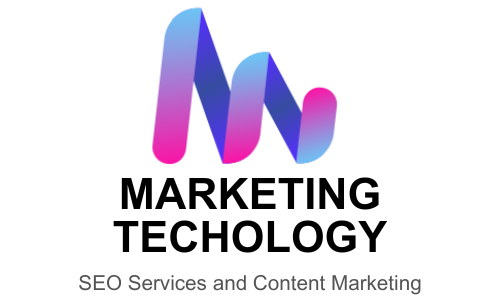The healthcare industry has undergone a significant transformation in recent years, with digital technology playing a pivotal role in enhancing patient care, streamlining processes, and improving overall healthcare delivery. As we move into 2025, digital health marketing has become an essential tool for healthcare organizations, providers, and brands to connect with patients, healthcare professionals, and other stakeholders. This evolution is not only driven by the increasing reliance on technology in healthcare but also by the changing behaviors of patients who now seek medical advice, treatments, and healthcare information online.
Digital health marketing is all about leveraging digital platforms to engage with audiences in the health and wellness sector. This marketing strategy helps healthcare brands establish their presence, educate patients, and drive awareness about their services or products. The future of digital health marketing is bright, with the continued growth of digital technologies offering new opportunities to reach and interact with potential patients.
What Is Digital Health Marketing?
Digital health marketing is a specialized form of marketing that focuses on using digital platforms to promote health services, products, and information. It involves the use of digital tools, platforms, and channels such as websites, social media, email, mobile apps, and search engine optimization (SEO) to connect with audiences interested in health and wellness.
The goal of digital health marketing is to enhance the accessibility and quality of healthcare content while providing an engaging, informative, and personalized experience for patients and healthcare providers. Digital health marketing strategies can range from providing educational content about health conditions to promoting telehealth services or medical products.
As healthcare continues to evolve, digital health marketing strategies have become essential for improving patient engagement, increasing visibility, and driving business growth for healthcare organizations. With the rise of digital technologies and patients becoming more digitally savvy, healthcare providers need to adopt a robust digital marketing strategy that aligns with the changing landscape.

Types of Digital Health Marketing
There are several types of digital health marketing that healthcare organizations can use to effectively engage their target audience. Below are some of the most popular forms of digital health marketing:
1. Search Engine Optimization (SEO)
SEO is one of the most powerful digital health marketing strategies. It involves optimizing a website’s content so that it ranks higher on search engine results pages (SERPs). For healthcare brands, SEO can be used to improve online visibility, increase website traffic, and drive more patients to a clinic or hospital’s website. Key strategies include keyword optimization, on-page SEO, backlinking, and local SEO to ensure the healthcare provider appears in relevant searches.
2. Social Media Marketing
With platforms like Facebook, Instagram, Twitter, and LinkedIn, social media marketing allows healthcare providers to interact directly with patients, promote services, and share important health-related content. Healthcare brands can use social media to run targeted advertising campaigns, build brand awareness, and establish a community around their products or services. Social media is particularly effective for connecting with younger, tech-savvy audiences.
3.Content Marketing
Content marketing is an essential strategy in digital health marketing that focuses on creating and sharing valuable, relevant content to attract and retain an audience. For healthcare brands, this could include blog posts, articles, infographics, case studies, or even videos. High-quality content not only educates patients but also helps improve SEO rankings, building trust with the audience.
4.Email Marketing
Email marketing remains one of the most effective ways to communicate with potential patients or clients. Through personalized email campaigns, healthcare organizations can provide important health tips, appointment reminders, newsletters, and information about new services or products. Segmented email lists help target specific patient groups, improving engagement and conversion rates.
5. Pay-Per-Click (PPC) Advertising
PPC advertising, particularly through Google Ads, can help healthcare providers increase visibility quickly. By paying for ad placements on search engines or other websites, healthcare brands can drive targeted traffic to their websites. PPC is ideal for marketing specific services, medical products, or seasonal health campaigns.
6. Influencer Marketing
Influencer marketing is becoming increasingly popular in the health sector. By collaborating with healthcare influencers or experts, brands can reach a broader audience and gain credibility. Influencers can promote services, share health tips, and provide authentic testimonials that resonate with their followers, especially in niche health areas like fitness, mental health, and wellness.
7. Telemedicine & Telehealth Marketing
As telemedicine and telehealth services continue to grow, marketing these services has become a priority for healthcare providers. Promoting the convenience, accessibility, and affordability of virtual healthcare services helps attract patients who prefer remote consultations and treatments.

Tips for Effective Digital Health Marketing
1. Build a Robust Digital Health Marketing Strategy
Having a solid strategy is key to success. Define your goals, audience, and digital marketing channels to ensure your efforts are aligned with the needs of your target audience. A clear strategy helps healthcare organizations maximize their digital marketing efforts and measure ROI.
2. Focus on Patient-Centered Content
Create content that resonates with your target audience. Understand the challenges your patients face and provide solutions that address their specific needs. Whether it’s through blog posts, educational videos, or FAQs, ensuring that content is valuable, informative, and easy to understand is critical for engaging your audience.
3. Leverage Data and Analytics
Track the performance of your digital health marketing campaigns using analytics tools. Data provides valuable insights into how your campaigns are performing and where improvements can be made. Use data to refine your strategies, adjust messaging, and optimize your digital marketing efforts.
4. Optimize for Mobile
As mobile usage continues to increase, it’s essential to ensure that your website and digital content are mobile-friendly. A mobile-optimized website enhances the user experience, increases engagement, and improves search engine rankings.
5. Engage with Your Audience on Social Media
Social media platforms offer a unique opportunity to engage with your audience in real-time. Responding to comments, providing customer support, and sharing valuable content can help build a community and foster loyalty among your patients.
6. Stay Up-to-Date with Healthcare Regulations
Digital health marketing requires compliance with healthcare regulations such as HIPAA (Health Insurance Portability and Accountability Act) and GDPR (General Data Protection Regulation). Make sure your marketing efforts are aligned with these regulations to protect patient privacy and avoid legal issues.
Conclusion
In 2025, digital health marketing will continue to be a driving force in healthcare promotion and patient engagement. By implementing an effective digital health marketing strategy, healthcare providers can reach a broader audience, increase their visibility, and foster long-term relationships with patients. From SEO and content marketing to social media and influencer marketing, the possibilities are endless.
For healthcare organizations looking to optimize their digital health marketing efforts, Marketing Technology offers a range of services including SEO and content marketing. These services help businesses improve their online presence, generate quality leads, and achieve their digital marketing goals. Contact us now!

Frequently Asked Questions
1. What is digital health marketing?
Digital health marketing is the use of digital platforms and strategies to promote healthcare products, services, and information. It includes tactics like SEO, social media marketing, email campaigns, and content marketing to connect with patients and healthcare professionals.
2. What are the top 7 types of digital marketing?
The top 7 types of digital marketing include:
- Search Engine Optimization (SEO)
- Social Media Marketing
- Content Marketing
- Email Marketing
- Pay-Per-Click (PPC) Advertising
- Influencer Marketing
- Telemedicine & Telehealth Marketing
3. What are examples of digital health?
Examples of digital health include telehealth services, mobile health apps, wearable health devices (like fitness trackers), and digital platforms that provide health information, resources, and consultations.



